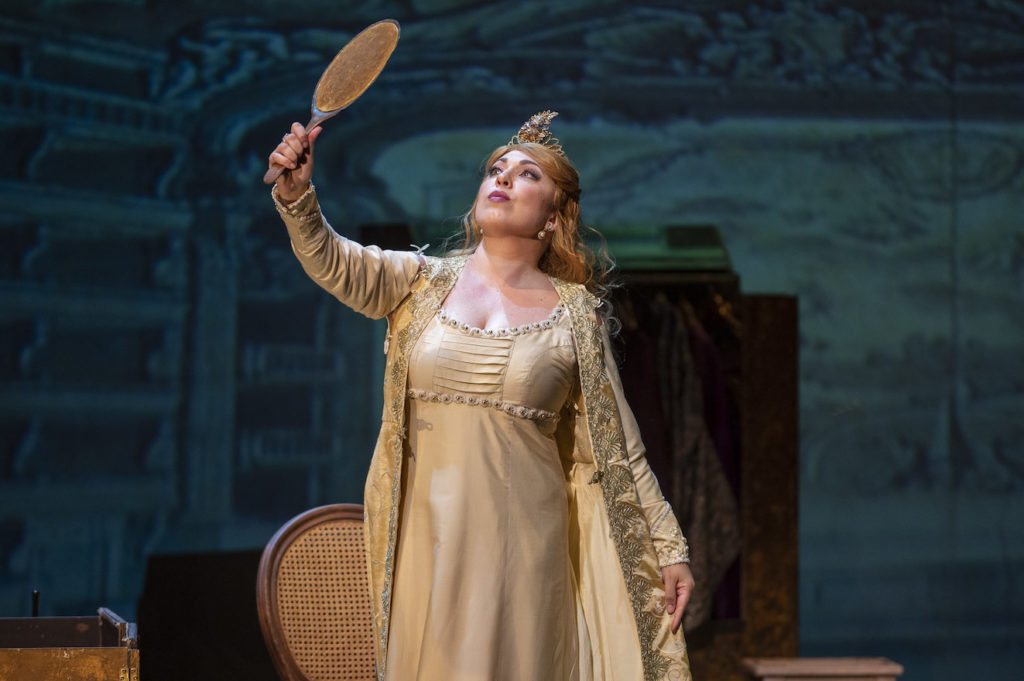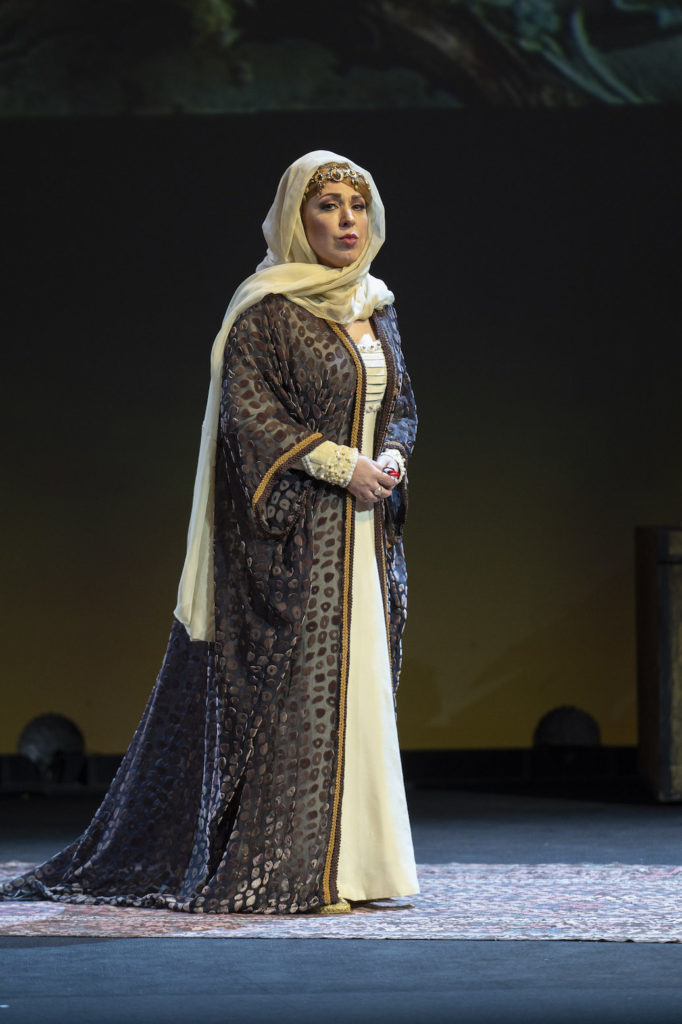Anlässlich des Auftritts von María José Siri als Adriana Lecouvreur im Auditorium Alfredo Kraus von Las Palmas auf Gran Canaria konnte ich folgendes Interview mit ihr machen, aufgrund der Pandemie mit eingereichten Fragen.
Dear Ms. Siri,
I was very impressed with your performance as Adriana Lecouvreur in Las Palmas and appreciate this interview on your work and experience as a soprano. I may say that I first saw you as Tosca in the State Opera Berlin in 2014, a good performance, too.

1. How did you become a singer? Family background. Teachers etc.
I became a singer by “mistake“. I was supposed to have a sax lesson and ended up in a singing lesson. The teacher invited me to remain just to listen and then later, I heard for the very first time a soprano. It was a real musical awakening. After that moment, I decided to dedicate my life to the opera. My father is a self-taught musician, he used to play the guitar and taught me songs still in my memory. He is my very first motivation and example about the real love for music.
2. As a singer with Latin American background, how do you feel singing in a Spanish environment vis-à-vis English or German speaking countries?
To sing in Spain is an incredible experience because we are very similar, especially in the Canary Islands from where a lot of emigration has happened to Uruguay since decades. We have food, words and a lot of things in common: also, the joy to applause an artist with sincere devotion.

3. How was your experience with Adriana Lecouvreur in Gran Canaria, since the last Adriana was sung here was in 1979 by Montserrat Caballé? What a feeling was that?
It was an incredible experience, artistically and humanely talking. Not only because of the great people I found there as colleagues, musicians but the whole working team in the theater! We work very well and hard to do our best with a lot of love and passion. I can only say: I’m honored to sing there where a lot of stars like my admired Montserrat sang Adriana before.
4. Can you describe the way how you see the role of Adriana in Cilea’s masterpiece?
It’s my life! A life completely dedicated to music. No one, no man, lover or love adventure can get over the art, the music, the beauty, the generosity of the stage, the sincere and authentic feelings, the truth, the compassion and so on. The sensibility, fragility most of the times, in my point of view, is not a sign of weakness but only a soul with a powerful sense of love and generous emotions. Adriana is a blessed character to work with, and it helps me improve my interpretation while trying to get deeper and deeper in her mysticism.

5. I have read in another interview that Ileana Cortrubas inspired you significantly in your career as an opera singer. Can you tell us something about this artistic relationship?
My first journey to Europe was to participate in the international competition „Monserrat Caballé“ in Andorra. In the jury was Ileana Cotrubas, I sang Lucia at that time, “Regnava nel silenzio“. I didn’t pass the first round, but Cotrubas told me I had a completely different kind of voice and a wrong technique. Ileana chose me to take an open masterclass with her during the competition. After that we kept in touch and I started to fly back and forth from Uruguay to study with her. She helped me to find my real voice and I will be thankful to her for my whole life.
6. How do you see the role of Francesco Cilea vis-à-vis other Verismo composers, particularly Giacomo Puccini?
For me Adriana and specially Puccini are not verismo. Technically, I don’t change my way of singing, but I style by changing accents, concretely I do give each word a specific weight. My only way to sing opera is in a bel canto technique and that is the infinite research of a beautiful sound with the correct accent on each word and phrasing.

7. How do you study a principle role like Adriana or Tosca? What are the steps in developing the interpretation of the new roles you are singing?
I start with my hands on the piano. Since I learned to read music before words (I started to study piano at 5) my very first contact needs to be me alone with my first love, studying passages and organizing fingers, dynamics and so on. That takes lots of time but only when I finished with the piano, I’m ready to study the vocal parts, of course playing by myself. That is the time to take the hands from the piano and concentrate on my voice as instrument. The next step is to try the breath and more or less fix it. At last, comes the work on the memory with a pianist.
8. Soon you will sing Adriana in Firenze. What are your further plans and in which new roles are you thinking presently?
My next debut is “Cavalleria Rusticana” at Arena di Verona. I’m preparing “Macbeth” and “Fanciulla del West” in my free time.

Thank you for your kind collaboration. I wish you all the best for your next endeavours.